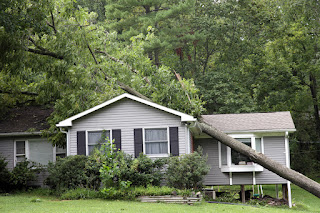Natural disasters can occur at any moment, leaving people in a state of shock and despair. The impact that natural disasters leave on individuals, homes, and communities is beyond imagination. It often takes years to completely recover from such incidents.
However, besides the damages it leaves in its aftermath, natural disasters also significantly impact property tax rates. This consequence often goes unnoticed until the tax bills come in. Therefore, it is crucial to understand how natural disasters affect property tax rates and prepare for the unexpected.
Property Damage Assessment
After a natural disaster like an earthquake, hurricane, or flood, assessing the extent of property damage is the first step taken by the authorities. It helps to determine the loss that occurred to the property and the need for restoration. This process can take months, during which the value of the property is usually depreciated. However, the property tax rate typically remains the same. Even if the property valuation decreases due to natural disaster losses, the tax rate can remain constant, increasing the post-disaster tax burden.
Taxation on Property Used for Temporary Housing
Natural disasters can leave people without homes, and often, the government intervenes by providing them with temporary shelter. However, sometimes these temporary accommodations may involve rented properties, which are often not taxable. In cases like these, housing providers can avoid taxes as the property is used to accommodate those suffering from natural disasters. Yet, when property owners claim tax exemption on temporary housing accommodations provided, the onus falls on other taxpayers.
Community-Level Impact of Natural Disasters
Natural disasters not only affect individual properties but they also affect communities. These disasters result in a significant reduction in property values due to reductions in population, changes in community income levels, and similar impacts felt at the community level. Natural disasters can lead to a rise in delinquent tax payments as individuals struggle to recover and disperse to new areas with new job opportunities.
Prevention is Better than Cure
The best way to prepare for natural disasters and their impact on property tax rates is to prevent damage in the first place. Governments and residents alike must conduct regular maintenance and upgrades to their properties that can help prevent damage from natural disasters. In addition, regular checks made formal and maintaining updated inventories of all household and community assets can help to ensure accurate assessments in the case of a natural disaster.
Insurance Coverage
Another aspect of being prepared for natural disasters is having proper insurance coverage. Homeowners must ensure that they have suitable insurance that covers losses due to natural disasters. Umbrella insurance policies are designed specifically to protect against natural disasters, including floods, breakdowns, and earthquakes. Ensuring that the coverage pays your rent and compensation for any resulting losses is essential.Contact Us For Property Tax Reduction on Long Island
Are you feeling the burden of your high property taxes? We want to help. Here at
P.T.R.C., Inc., we are determined to help our clients pay the lowest amount of property tax as required by law. Contact us today to see how we can help you save money and a headache.



Comments
Post a Comment